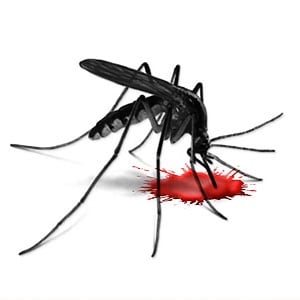
The world's first malaria vaccine got a green light on Friday 24 July 2015 from European drugs regulators who recommended it should be licensed for use in babies in Africa at risk of the mosquito-borne disease.
The shot, called RTS,S or Mosquirix and developed by British drugmaker GlaxoSmithKline in partnership with the PATH Malaria Vaccine Initiative, would be the first licensed human vaccine against a parasitic disease and could help prevent millions of cases of malaria in countries that use it.
Recommendations for a drug licence made by the European Medicines Agency (EMA) are normally endorsed by the European Commission within a couple of months.
Mosquirix, also part-funded by the Bill & Melinda Gates Foundation, will also now be assessed by the World Health Organisation, which has promised to give its guidance on when and where it should be used before the end of this year.
Malaria killed an estimated 584,000 people in 2013, the vast majority of them in sub-Saharan Africa. More than 80 percent of malaria deaths are in children under the age of five.
Read: Five facts you need to know about malaria
Andrew Witty, GSK's chief executive, said EMA's positive recommendation was a further important step towards making the world's first malaria vaccine available for young children.
"While RTS,S on its own is not the complete answer to malaria, its use alongside those interventions currently available such as bed nets and insecticides would provide a very meaningful contribution to controlling the impact of malaria on children in those African communities that need it the most," he said in a statement.
Global health experts have long hoped scientists would be able to develop an effective malaria vaccine, and researchers at GSK have been working on RTS,S for 30 years.
Hopes that this shot would be the final answer to wiping out malaria were dampened when trial data released in 2011 and 2012 showed it only reduced episodes of malaria in babies aged 6-12 weeks by 27 percent, and by around 46 percent in children aged 5-17 months.
EMA's recommendation is that the shot should nevertheless be licensed for use in babies in the full age range covered in the trials -- from 6 weeks to 17 months.
Some malaria specialists have expressed concern that the complexities and potential costs of deploying this first vaccine when it only provides partial protection make it less attractive and more risky.
However Joe Cohen, a GSK scientist who has led the development of Mosquirix since 1987, said on Friday he has no doubt the vaccine could significantly reduce the toll of sickness and death caused by the malaria among African children.
"I have absolutely no reservations in terms of rolling this vaccine out," he told Reuters. "Why? Because the efficacy, when translated into cases averted and deaths averted, is just tremendous. It will have an enormously significant public health impact."
About Mosquirix
Mosquirix is the brand name given to this malaria candidate vaccine. Its scientific name, RTS,S, reflects the composition. RTS,S also contains the AS01 adjuvant system.[i]
RTS,S aims to trigger the body’s immune system to defend against the Plasmodium falciparum malaria parasite when it first enters the human host’s bloodstream and/or when the parasite infects liver cells.
It is designed to prevent the parasite from infecting, maturing and multiplying in the liver, after which time the parasite would re-enter the bloodstream and infect red blood cells, leading to disease symptoms.
The safety and efficacy of RTS,S has been evaluated in a large-scale phase III trial, in which it was administered in three doses, one month apart, with an additional fourth dose given 18 months later. Results from this trial have consistently demonstrated that RTS,S can help to protect children against malaria in endemic countries, when used in addition to other malaria control measures such as bed nets.
Read more:




 Publications
Publications
 Partners
Partners















